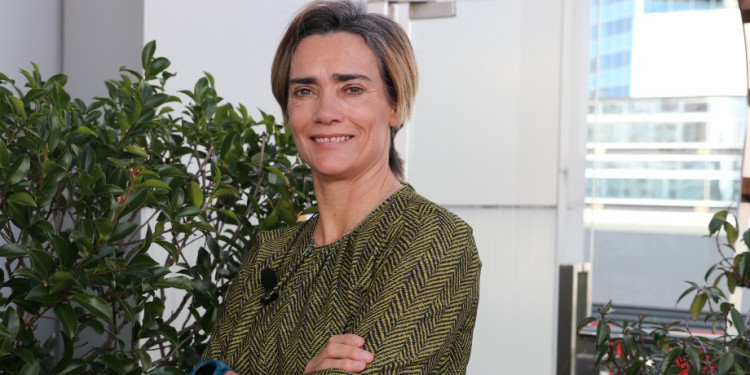
Dr Lucy Hone is co-director of the New Zealand Institute of Wellbeing and Resilience.
How do we become resilient in times of adversity, both professionally and personally?
Dr Lucy Hone, a wellbeing and resilience expert, says it’s all about recognising what your thoughts are up to.
“Choose where you’re focusing your attention and analyse whether your thoughts are helping or harming you,” Dr Hone said at an event with the New Zealand Institute of Wellbeing and Resilience, hosted by Westpac NZ.
Dr Hone is not just an expert on the topic because she studied resilience at the University of Pennsylvania, Philadelphia, but her own personal tragedy of losing her daughter Abi in a car crash set her on a path of researching mental strength firsthand.
“Resilience is the capacity within us to take on new challenges as well as deal with times of adversity,” she said.
We will all face adversity throughout life and Dr Hone’s science-backed teachings are a starting point in how to train ourselves to get through challenges.
Knowing that suffering is part of life is one thing that can help us through tough times, she says.
“We are shaped by our experiences and life isn’t perfect. Seeking perfectionism is toxic,” she said.
“Through seeking perfection, we can be nasty to ourselves. It’s important to learn ways to dial back your inner critic, instead of being too solution driven,” she said.
"I have lived through the Christchurch earthquakes, the mosque attacks, the current Covid pandemic and the death of Abi, but I am not unique,” she said.
Dr Hone recommended focusing our thoughts on positive ways forward instead of ruminating on negativity. This can be done through analysing our thoughts as they come into our heads and deciding which ones to listen to and which to discard.
Fellow speaker Dr Denise Quinlan said we have to have self-compassion to be resilient and that same self-compassion is proven to achieve high performance professionally.
“People who are self-compassionate learn more from their failures, cope better with challenges, have more perseverance in the face of setbacks, have greater personal responsibility for their actions and have better physical health and immune function.
“It can also keep burnout at bay,” Dr Quinlan said.
Regarding professional burnout, Dr Hone says people at risk are those who love their jobs.
"If you get meaning and purpose from your job, you might be giving it so much that it tips over into burnout. Burnout can be caused by large workloads, lack of recognition within the company you work for and lack of autonomy.
“The signs of burnout are exhaustion, cynicism, ineffectiveness, losing confidence, feeling a lack of meaning in what you do, experiencing panic attacks,” she said.
“If you remove yourself from work and you still feel down though, it could be a sign of depression instead of occupational burnout,” Hone said.
“A great way to recover from stress is to learn something new that you want to learn and to increase your social contact. Spend time with friends, colleagues and family,” Dr Quinlan said.
Hone says if you focus your attention on where you want to go, that will progress you more than being fixated on what you need to fix right now.
“Your career should be an adventure,” she said.
Dr Lucy Hone is co-director of the New Zealand Institute of Wellbeing and Resilience and one of the inspirational speakers at the Women of Influence Speaker Series in Christchurch on August 12.
Tickets are available through the Women of Influence website.
